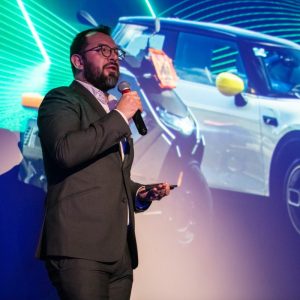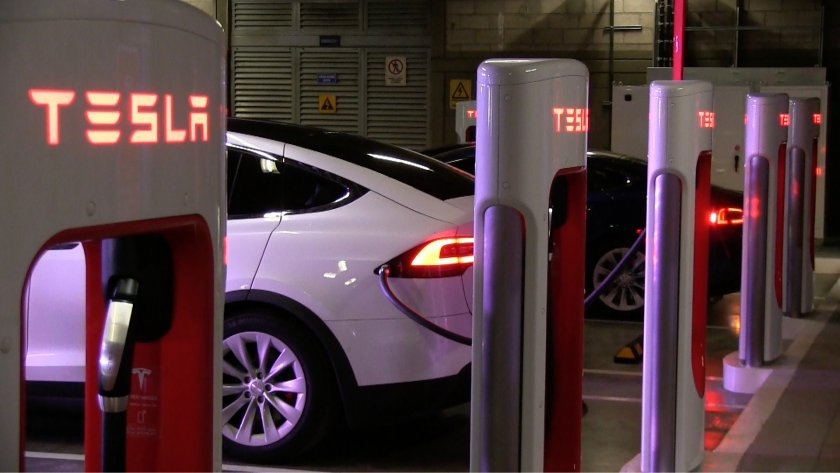The standardization of charging protocols is an uphill battle in the Mexican electric mobility market. Various public entities have made announcements about how it could be achieved, with NACS as an option.
Especially the Ministry of Foreign Affairs (SRE) aims to establish a North American standard.
However, private entities are advancing in their strategies to facilitate the production and user experience of electric vehicles.
In that regard, companies like Volvo, General Motors, Ford, Rivian, and Hyundai have announced that they will align with the North American Charging Standard (NACS) used by Tesla starting from 2025.
This alignment would provide most electric vehicles in the region with access to the most robust charging network.
It’s worth mentioning that Tesla, General Motors, and Ford account for over 70% of zero-emission vehicles in circulation in the region.

As part of the event titled “Electric and Sustainable Mobility in Mexico,” organized by Mobility Portal Group, companies dedicated to charging infrastructure share their insights on the topic.
“This is going to change how electric mobility is conceived,” indicates Daniel Abraham López, Chief Commercial Officer at Evergo Mexico.
At the same time, the executive points out that standardization “is positive” in all mature markets.
In that regard, he argues that the 394% increase in electric vehicle sales in 2022 compared to 2021 confirms this premise.
“For the first time that year, more electric vehicles were sold than plug-in hybrids, which is a transitional technology,” López notes.
And he adds, “There is much more acceptance for 100% electric vehicles, and this year’s records are heading in that direction.”
Evergo sees the levels of investment in electromobility that the country has experienced as an indicator of market maturity.
“From 2019 to 2022, the automotive industry had $3 billion in investments in electromobility,” explains the company’s Chief Commercial Officer.
And he further explains, “Just in the course of this year, $9 billion in investment has been announced in Mexico.”
López argues that another maturity factor in the market is standardization.
According to him, “In the country, the market has grown faster than regulation.”
This situation implies the coexistence of Type 1, Combo 1, Tesla chargers, and also GBT formats.
Contrary to the general understanding that the American standard would predominate in North America, the significant influx of Chinese vehicles causes their charging protocol to gain more weight in the charging market.

For this reason, Pedro Escudero, Commercial Director at XC Power, believes that standardization would not happen in the short term.
“Last year, half of the cars sold were equipped with GBT,” the executive points out.
Due to the diversity of chargers, companies need to invest to a greater extent throughout the value chain.
Manufacturers have to produce different products for charging, operators must acquire them, and authorities must regulate a variety of technologies in circulation.
Simultaneously, users have a range of possibilities, which can reduce the usability of vehicles.
Without NACS: What is the strategy of companies that offer charging?
Regarding the uncertainty that the implementation of this standard can create within two years, Evergo aims to maintain a universal network that “supports all formats.”
“But this approach in the long run doesn’t allow us to achieve economies of scale due to the multitude of devices,” López warns.
And he adds, “At least in the conversations we’ve had with automakers in Mexico, this has led us to a significant question mark.”
In that regard, he explains that it’s necessary to define a common protocol in the market. To do this, he believes that “the best” approach is to agree on one format for AC charging and another for DC charging.
“That will help charging station manufacturers, charging point operators, electric suppliers, and especially the end user,” argues Evergo’s Chief Commercial Officer in Mexico.
And he concludes, “This is the most significant change that has occurred in the automotive industry. The adoption of the NACS charging format is either coming or not coming to Mexico, and it will either standardize towards it or not in the market.”
On the other hand, XC Power will offer the NACS standard in its chargers starting next year.
Its Commercial Director, Pedro Escudero, explains that Tesla has shared the protocols with manufacturers and protocol creators, clarifying that the company is “not monopolizing the service.”
He also highlights a less positive aspect: the timeline of this technology.
“A limitation is the timeline for NACS deployment: We have two critical years to reach 2025, and the networks need to be established before another change could occur in that year, potentially altering the networks that were deployed,” Escudero analyzes.
Another issue to address, according to the Commercial Director, is the definition of “North America.”
This premise is based on the fact that while Mexico is included within the region, it is uncertain to what extent automakers will include the country in their regional strategy.
Here is the complete event:






